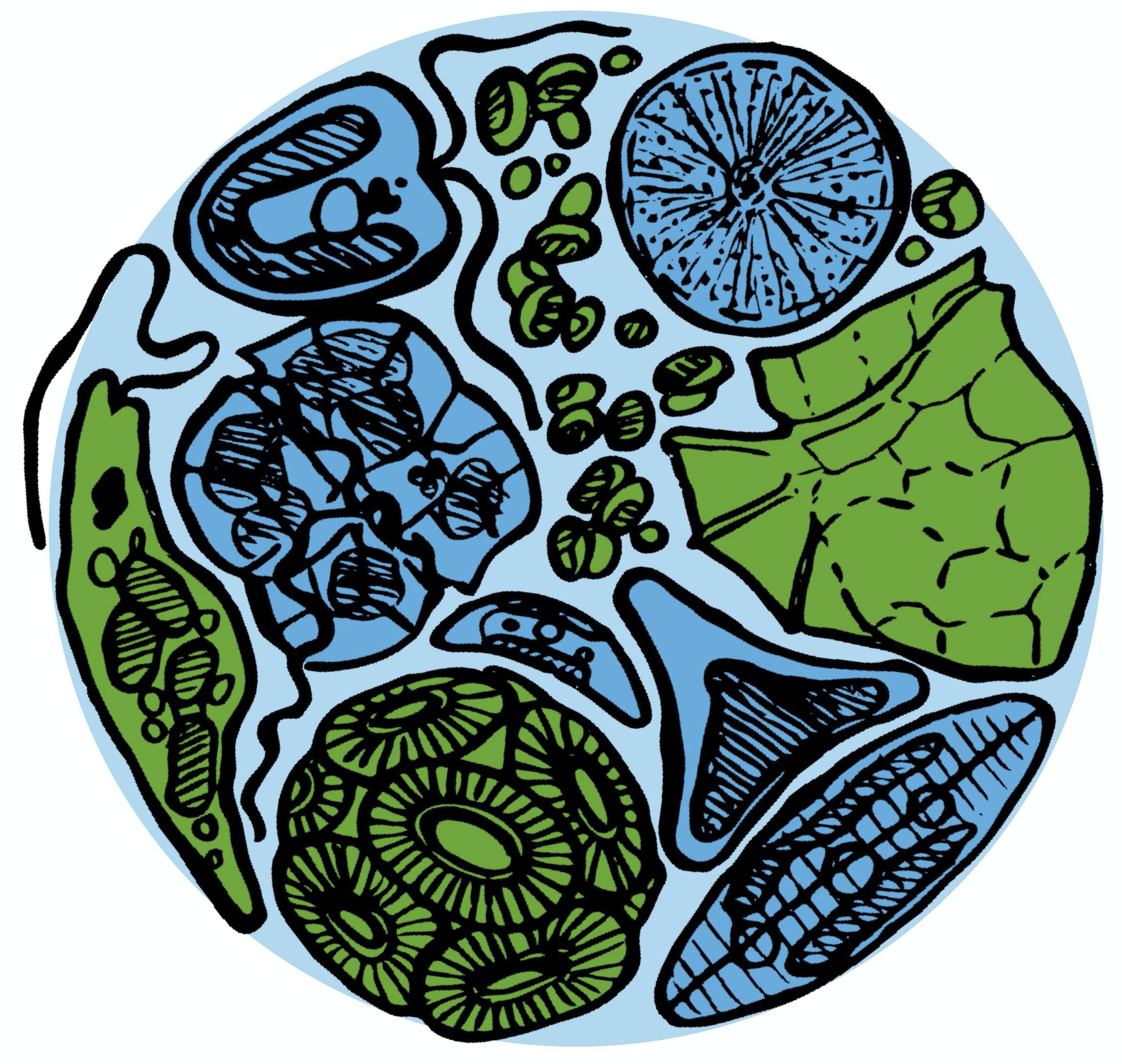You are here
Horizontal Evolution of Algal Lifestyles (HEAL)
The acquisition of a chloroplast by endosymbiosis fundamentally changes the cell biology, physiology, and ecology of plants and eukaryotic algae, the latter of which perform up to half of global photosynthesis. This process has happened multiple times across the tree of life, creating an extraordinary diversity algal lineages, many of which have arisen through secondary and tertiary endosymbiosis. Alongside this, different groups of algae have diversified their genetic repertoires through non-endosymbiotic horizontal gene transfers with a range of eukaryotic and prokaryotic partners ; which may facilitate their environmental adaptation .
Our group uses experimental and computational techniques to explore how orizontal interactions underpin the evolutionary diversification of eukaryotic algae. We are particularly interested in the diversity and evolution of nucleus-encoded and chloroplast-targeted proteins in algae, and also more broadly in how horizontal gene transfers underpin algal adaptations across the global ocean, and in changing environments.
More:
Our work revolves around three interlinked questions.
• Molecular elucidation of algal chloroplast proteomes
Here, we use experimental proteomics, in silico prediction, and phylogenomics to establish what nucleus-encoded and chloroplast-targeted proteins are found in different algae, and how they evolved. We study in particular two groups : the dinoflagellates, which have repeatedly replaced their chloroplasts through serial endosymbioses ; and the chrysophytes, that have independently lost the ability to photosynthesise on multiple occasions. We are interested to diagnose how chloroplast proteomes, which we consider as « mosaics » of proteins of symbiont, host and horizontal origin are influenced by the evolutionary history of the host. We are also interested to find recurrent themes in chloroplast evolution, e.g. proteins that are repeatedly lost in non-photosynthetic descendants of photosynthetic algae, and therefore may be important to photosynthetic performance.
• Experimental and environmental characterisation of novel algal chloroplast proteins
Here, we use phylogenetics, GFP localisation, CRISPR mutagenesis and meta-genomic approaches to diagnose the functions of novel proteins associated with the chloroplasts of algae but not found in plants. Part of our work has used diatoms, an abundant group of algae in the world ocean, but we are also interested to explore these questions with other algal groups (particularly green algae) and even protists and yeast. Our current projects focus on : chloroplast-targeted glycolysis, which we infer may allow diatoms to acclimate to different photoperiods and temperatures in the world ocean ; chloroplast transporter proteins, where in particular we are using meta-genomics to identify novel algal transporters connected to marine primary production ; and a novel ATP synthase related protein shared between diatoms, green algae and protists.
• Understanding algal horizontal evolution over time and space
Here, we use genome sequencing, phylogenetic, physiological and environmental approaches to explore how horizontal gene transfers, and interactions between algae and other species, have influenced their deep evolution and current ecology. We are particularly interested here in studying the genomes of algae native to the Arctic Ocean, which we have shown possess « Arctic-specific » genes likely transferred by within-oceanic horizontal gene transfer in this environment ; and the pan-genome of haptophytes, a globally distributed algal order with projected resilience to climate change. We maintain a small culture collection of Arctic native algae and globally distributed haptophytes, including new strains we have placed in culture from field missions, and are particularly happy to integrate environmental sampling into our ongoing research.
Collaborations :
University of Nottingham – Ellen Nisbet
CEA Grenoble – Eric Maréchal, Giovanni Finazzi
IBENS– Chris Bowler
University of Alberta– Joel Dacks
CSUSM – Betsy Read
University of Ottawa- Marina Cvetkovska
Joint Genomes Institute (JGI)





